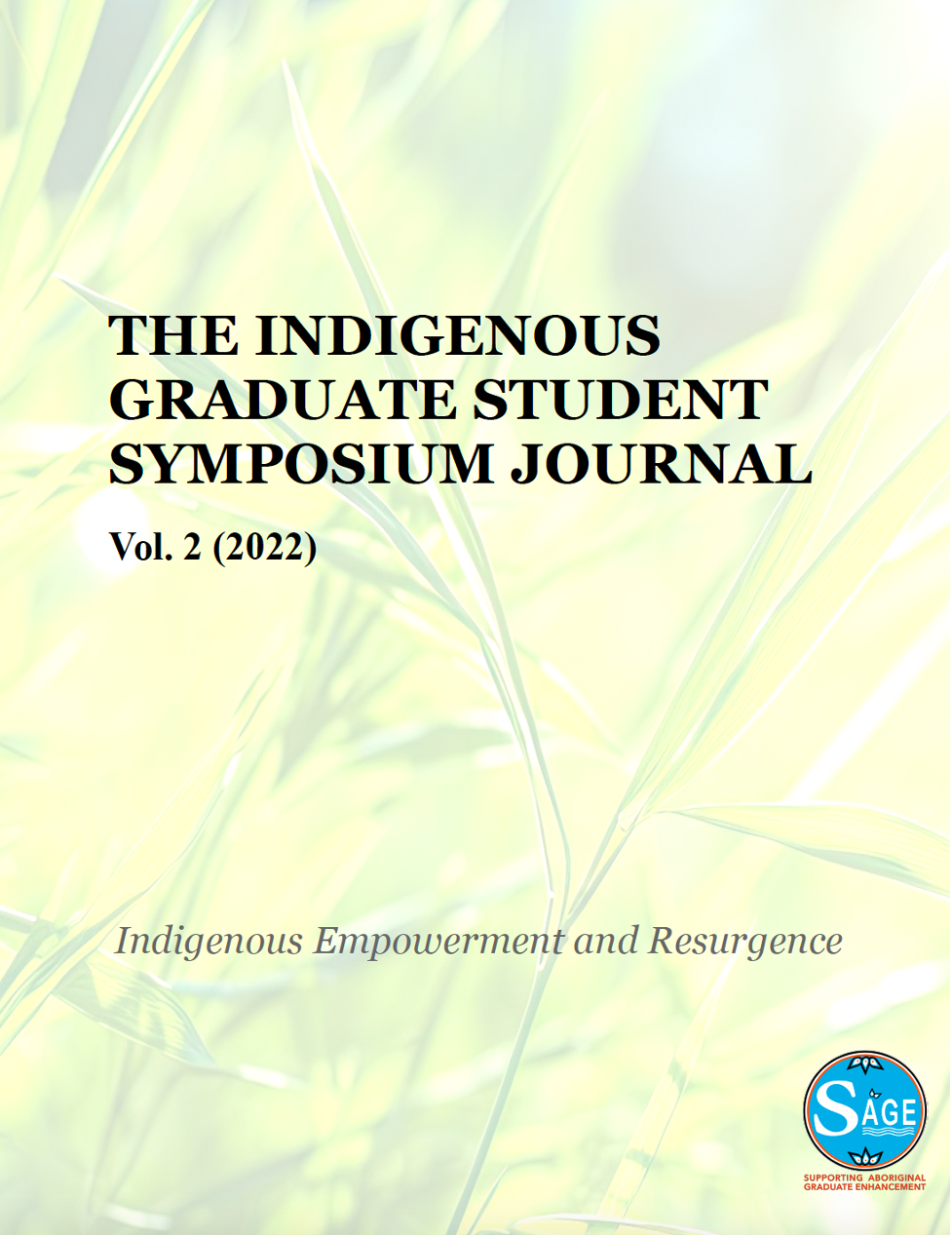Culture & Health Among First Nations in Canada
Main Article Content
Abstract
Current health inequities amongst First Nations peoples are frequently attributed to various historical and ongoing effects of colonization. While some evidence suggests that certain aspects of First Nations cultural identity might protect against poor health outcomes often worsened through experiencing social stress, inconsistent evidence and minimal research in this regard has explored these links among First Nations peoples in Canada. That said, the current objectives of the study were to better understand what types of social stressors (e.g., bullying, cyberbullying) worsen levels of (psychological) distress and which cultural factors seem to be linked to reduced distress and/or moderate (protect) against unwanted impacts of particular social stressors on levels of distress. Secondary analyses (e.g., see Paul, McQuaid, Hopkins, Perri, Stewart, Matheson, Anisman, & Bombay, 2023 [manuscript titled “Relations between bullying and distress among youth living in First Nations communities: Assessing direct and moderating effects of culture-related variables” in an upcoming special issue of the Journal of Transcultural Psychiatry]) were performed using the First Nations Regional Health Survey 2015/16 youth data.
Overall, bullying and cyberbullying were associated with increased distress. Strong feelings of community belonging were directly associated with lower distress and buffered the relationships between bullying/cyberbullying and distress. Among youth who experienced cyberbullying, those who participated in community cultural events at least sometimes reported lower distress compared to those who rarely or never participated. These secondary analyses highlight the importance of certain culture-related variables as key factors associated with the well-being of youth living in First Nations communities across Canada. The full manuscript (e.g., see Paul, McQuaid, Hopkins, Perri, Stewart, Matheson, Anisman, & Bombay, 2023 [manuscript titled “Relations between bullying and distress among youth living in First Nations communities: Assessing direct and moderating effects of culture-related variables”] will be available in an upcoming special issue of the Journal of Transcultural Psychiatry. It is hoped that this work supports the need for more culturally based health and social policies and programming for First Nations youth.
In addition, presenter Jocelyn Paul, discussed the role of psychologists in Canada and the ”Blackfoot Model of Needs” during her poster presentation. Jocelyn stresses her work in Clinical Psychology to date, as a First Nations resident, and the importance of cultural safety training and competence working with First Nations clients and in community. Overall, the presentation illuminated the importance of understanding First Nations health within a biopsychosocial framework.
Article Details

This work is licensed under a Creative Commons Attribution-NonCommercial 4.0 International License.

